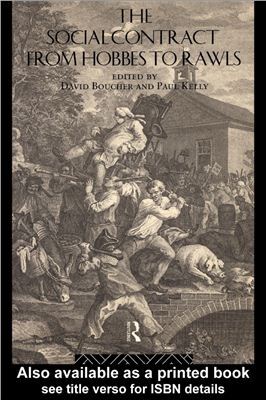Taylor & Francis e-Library, 2005. 291 pages.
The concept of a social contract has been central to political thought since the seventeenth century. Contract theory has been used to justify political authority, to account for the origins of the state, and to provide foundations for moral values and the creation of a just society.In The Social Contract from Hobbes to Rawls, leading scholars from Britain and America survey the history of contractarian thought and the major debates in political theory which surround the notion of social contract.
The book examines the critical reception to the ideas of thinkers including Hobbes, Locke, Rousseau, Hegel and Marx, and includes the more contemporary ideas of John Rawls and David Gauthier. It also incorporates discussions of inteational relations theory and feminist responses to contractarianism. Together, the essays provide a comprehensive introduction to theories and critiques of social contract, within a broad political theoretical framework.
The concept of a social contract has been central to political thought since the seventeenth century. Contract theory has been used to justify political authority, to account for the origins of the state, and to provide foundations for moral values and the creation of a just society.In The Social Contract from Hobbes to Rawls, leading scholars from Britain and America survey the history of contractarian thought and the major debates in political theory which surround the notion of social contract.
The book examines the critical reception to the ideas of thinkers including Hobbes, Locke, Rousseau, Hegel and Marx, and includes the more contemporary ideas of John Rawls and David Gauthier. It also incorporates discussions of inteational relations theory and feminist responses to contractarianism. Together, the essays provide a comprehensive introduction to theories and critiques of social contract, within a broad political theoretical framework.

